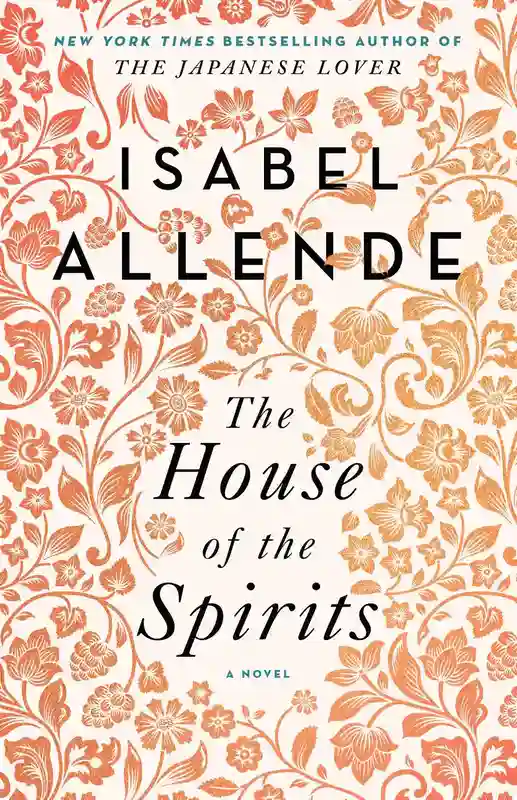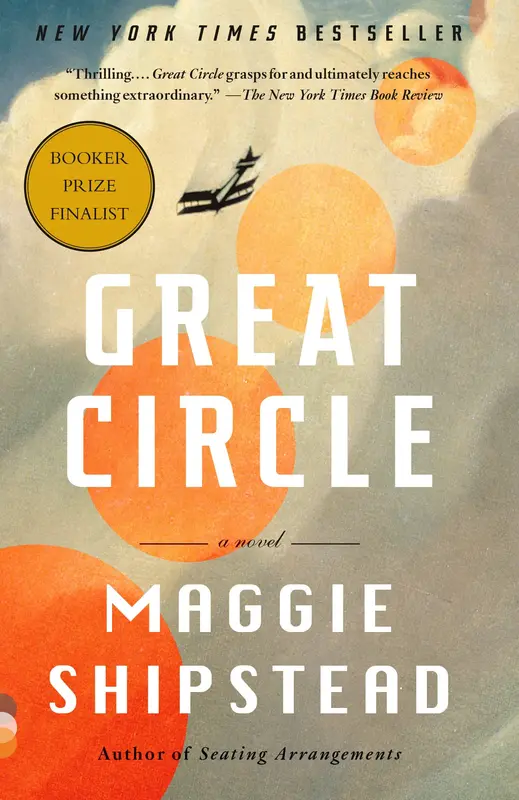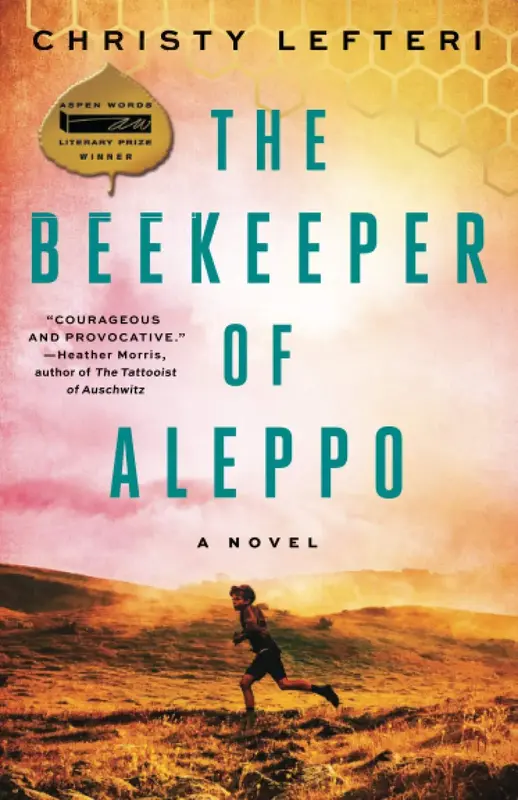This post may contain affiliate links. Read more here.
Book club questions for A Long Petal of the Sea by Isabel Allende invite readers to delve into the intricate themes of displacement, resilience, identity, and homecoming amidst the turmoil of a tumultuous historical period.
A Long Petal of the Sea follows the story of refugees fleeing the Spanish Civil War who board the SS Winnipeg in 1939. The novel explores the struggles of the refugees to adjust to their new lives in Chile, as well as the challenges they face as they attempt to rebuild their lives in a new country.
How do the refugees’ different backgrounds and experiences affect their interactions with each other and with the people of Chile? How does the trauma of the civil war and displacement shape their perspectives and actions? What role does politics and the global climate play in the story, both as a source of hope and as a cause of suffering?
A Long Petal of the Sea raises questions about the nature of survival and the various ways it can be manifested, as well as exploring the value of personal legacy and how it shapes one’s identity. The novel’s historical setting, spanning from the Spanish Civil War to the 1970s, offers an opportunity to examine the impact of war and displacement on individuals and society.
From exploring the experiences of refugees and immigrants to the intricacies of family dynamics, there is much to unpack in A Long Petal of the Sea. The novel also touches on themes of love, friendship, politics, and the power of storytelling. So, let’s explore some book club questions for A Long Petal of the Sea!
We hope you will enjoy analyzing the themes of A Long Petal of the Sea with your book club and delving into the complexity of Isabel Allende’s writing. Share your thoughts and insights with us!✨
The Synopsis
In the late 1930s, civil war grips Spain. When General Franco and his Fascists succeed in overthrowing the government, hundreds of thousands are forced to flee in a treacherous journey over the mountains to the French border. Among them is Roser, a pregnant young widow, who finds her life intertwined with that of Victor Dalmau, an army doctor and the brother of her deceased love. In order to survive, the two must unite in a marriage neither of them desires.
Together with two thousand other refugees, Roser and Victor embark on the SS Winnipeg, a ship chartered by the poet Pablo Neruda, to Chile: “the long petal of sea and wine and snow.” As unlikely partners, the couple embraces exile as the rest of Europe erupts in world war. Starting over on a new continent, they face trial after trial, but they will also find joy as they patiently await the day when they might go home. Through it all, their hope of returning to Spain keeps them going. Destined to witness the battle between freedom and repression as it plays out across the world, Roser and Victor will find that home might have been closer than they thought all along.
A masterful work of historical fiction about hope, exile, and belonging, A Long Petal of the Sea shows Isabel Allende at the height of her powers.
In love with literature? Try audio books or writing classes
for free for 30 days.✨
Selected Reviews for A Long Petal of the Sea
“Allende . . . has deftly woven fact and fiction, history and memory, to create one of the most richly imagined portrayals of the Spanish Civil War to date, and one of the strongest and most affecting works in her long career.” —The New York Times Book Review
“Allende’s latest . . . marks a return to the time and setting of the book that jump-started her literary career, The House of the Spirits, but with far less supernatural elements and a more expansive engagement of revolution, exile and the determination of the human spirit. . . . A page-turning story rich with history and surprising subplots that keep the novel unpredictable to the end.” —Los Angeles Times
“Isabel Allende’s A Long Petal of the Sea gets to the heart of immigrant struggle. . . . [It] begins, as it ends, with the heart. . . . Victor and Roser’s story is compelling. . . . Allende’s prose is both commanding and comforting. The author writes eloquently on the struggle of letting go of one culture to embrace a new one and shows that one’s origin story is not the whole story. . . . While debate and policy surround the issues of refugees and immigration, Allende reminds us that these issues, at their core, are made up of individuals and their love stories.” —USA Today
Book Club Questions for A Long Petal of the Sea
The following book club questions have been tailored to this book’s specific reading experience.✨
- A Long Petal of the Sea follows the journey of Roser and Victor, two Spanish refugees who flee to Chile during the Spanish Civil War. How does the novel explore the themes of displacement, immigration, and the search for belonging?
- The novel spans several decades and historical events, including the Spanish Civil War, World War II, and the rise of Chilean dictator Augusto Pinochet. How does Allende weave these historical events into the narrative, and what do they reveal about the characters and their experiences?
- Throughout the novel, Roser and Victor navigate their relationship as both family members and romantic partners. How does their relationship evolve over time, and how does their love story intersect with the larger themes of the novel?
- A Long Petal of the Sea also explores the role of art and creativity in times of crisis. How do the characters use their artistic talents to cope with trauma and loss, and how does art serve as a means of resistance against oppressive regimes?
- The novel delves into the lives of Chilean exiles who fled to other countries during Pinochet’s regime. How does Allende portray the experiences of these exiles, and what does their story reveal about the political and social climate of Chile during that time?
- The title of the novel is taken from a poem by Pablo Neruda. How does Neruda’s poetry influence the themes and imagery of the novel, and what is the significance of the long petal of the sea?
- A Long Petal of the Sea raises questions about the meaning of home and the importance of cultural heritage. How do the characters reconcile their identities as Spanish exiles in Chile, and what role does language and cultural heritage play in their sense of belonging?
- The novel also explores the theme of generational trauma and the impact of historical events on future generations. How does the trauma of the Spanish Civil War and Pinochet’s regime shape the experiences of the younger characters in the novel, such as Roser and Victor’s son, Marcel?
- Allende has been praised for her rich and vivid writing style. How does her writing style contribute to the overall impact of the novel, and what are some of your favorite passages or moments from the book?
- A Long Petal of the Sea raises important questions about the human experience, such as the nature of love, the resilience of the human spirit, and the power of hope. How does the novel inspire reflection on these larger questions, and what insights did you gain from reading it?
- How do you interpret the significance of the Pablo Neruda quotes at the beginning of each chapter? How do they relate to the events that follow and the overall themes of the novel? Did your understanding of them change when Neruda himself became a character in the story?
- The title of the novel, A Long Petal of the Sea, is a line from one of Pablo Neruda’s poems. What do you think the title means in the context of the novel? How does it relate to the themes of love, survival, and perseverance?
- Which character’s transformation did you find most compelling, and why? How did their experiences shape them, and how did they grow throughout the novel?
- In A Long Petal of the Sea, Isabel Allende explores complex themes such as politics, war, and social justice. How are these themes reflected in the novel, and what lessons can we draw from them?
- Victor and Roser’s relationship evolves throughout the novel, from forced companionship to genuine affection. How does their relationship change, and what does it reveal about the nature of love and human connection?
- The novel explores the experiences of refugees and the challenges they face in adapting to new environments. How does Allende depict the hardships and prejudices faced by refugees, and how do these experiences resonate with contemporary issues surrounding immigration and displacement?
- The character of Pablo Neruda serves as a symbol of hope and resistance against oppressive regimes. How does his presence in the novel contribute to the themes of political upheaval and the power of art to inspire change?
- Allende’s writing is rich with imagery and symbolism. What are some of the most striking images or symbols in the novel, and what do they represent? How do they contribute to the overall meaning and impact of the story?
- A Long Petal of the Sea spans several decades and covers a significant period in Chilean history. How does the novel illuminate the cultural and social changes that occurred during this time, and what insights does it offer into the evolution of Chilean identity?
- How do the various characters’ beliefs and values shape their decisions and actions throughout the novel? How do these individual perspectives contribute to the larger themes of the story, such as resilience, survival, and hope?
- The novel ends on a bittersweet note, with Victor and Roser reflecting on their journey and the challenges they have overcome. How did you interpret the ending, and what message do you think Allende is conveying through it?
- What did you learn about human nature and the human experience from reading A Long Petal of the Sea? How did the novel challenge your assumptions or deepen your understanding of historical events and the impact they have on individuals and societies?
Additional Recommendations
Hope you enjoyed my book club and discussion questions for A Long Petal of the Sea by Isabel Allende!
Here are some more of my book club recommendations:
The House of the Spirits by Isabel Allende
The House of the Spirits, the unforgettable first novel that established Isabel Allende as one of the world’s most gifted storytellers, brings to life the triumphs and tragedies of three generations of the Trueba family. The patriarch Esteban is a volatile, proud man whose voracious pursuit of political power is tempered only by his love for his delicate wife Clara, a woman with a mystical connection to the spirit world. When their daughter Blanca embarks on a forbidden love affair in defiance of her implacable father, the result is an unexpected gift to Esteban: his adored granddaughter Alba, a beautiful and strong-willed child who will lead her family and her country into a revolutionary future.
One of the most important novels of the twentieth century, The House of the Spirits is an enthralling epic that spans decades and lives, weaving the personal and the political into a universal story of love, magic, and fate.
Great Circle by Maggie Shipstead
After being rescued as infants from a sinking ocean liner in 1914, Marian and Jamie Graves are raised by their dissolute uncle in Missoula, Montana. There–after encountering a pair of barnstorming pilots passing through town in beat-up biplanes–Marian commences her lifelong love affair with flight. At fourteen she drops out of school and finds an unexpected and dangerous patron in a wealthy bootlegger who provides a plane and subsidizes her lessons, an arrangement that will haunt her for the rest of her life, even as it allows her to fulfill her destiny: circumnavigating the globe by flying over the North and South Poles.
A century later, Hadley Baxter is cast to play Marian in a film that centers on Marian’s disappearance in Antarctica. Vibrant, canny, disgusted with the claustrophobia of Hollywood, Hadley is eager to redefine herself after a romantic film franchise has imprisoned her in the grip of cult celebrity. Her immersion into the character of Marian unfolds, thrillingly, alongside Marian’s own story, as the two women’s fates–and their hunger for self-determination in vastly different geographies and times–collide. Epic and emotional, meticulously researched and gloriously told, Great Circle is a monumental work of art, and a tremendous leap forward for the prodigiously gifted Maggie Shipstead.
The Beekeeper of Aleppo by Christy Lefteri
Nuri is a beekeeper and Afra, his wife, is an artist. Mornings, Nuri rises early to hear the call to prayer before driving to his hives in the countryside. On weekends, Afra sells her colorful landscape paintings at the open-air market. They live a simple life, rich in family and friends, in the hills of the beautiful Syrian city of Aleppo—until the unthinkable happens. When all they love is destroyed by war, Nuri knows they have no choice except to leave their home. But escaping Syria will be no easy task: Afra has lost her sight, leaving Nuri to navigate her grief as well as a perilous journey through Turkey and Greece toward an uncertain future in Britain.
Nuri is sustained only by the knowledge that waiting for them is his cousin Mustafa, who has started an apiary in Yorkshire and is teaching fellow refugees beekeeping. As Nuri and Afra travel through a broken world, they must confront not only the pain of their own unspeakable loss but dangers that would overwhelm even the bravest souls. Above all, they must make the difficult journey back to each other, a path once so familiar yet rendered foreign by the heartache of displacement.
Moving, intimate, and beautifully written, The Beekeeper of Aleppo is a book for our times: a novel that at once reminds us that the most peaceful and ordinary lives can be utterly upended in unimaginable ways and brings a journey in faraway lands close to home, never to be forgotten.
Thank you for reading my book club discussion questions and as always, happy reading! ❤️


